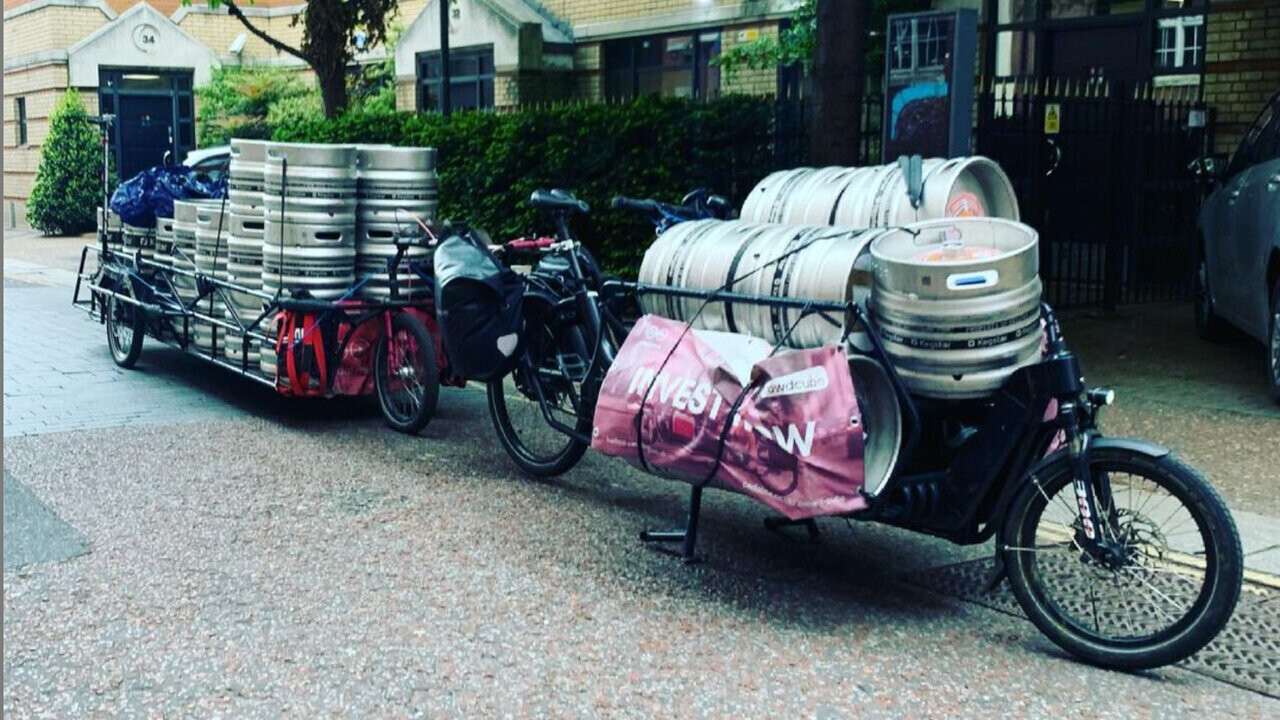
You might think of delivery vans when it comes to getting your packages delivered, but they have a contender–cargo bikes. Research published this week shows that cargo bikes can be faster than delivery vans and also used as an efficient tool for transporting goods, other people, children, animals, and much more.
It found that the freight cycles deliver on average 1.61 times faster than those delivered by van. For the study, Active Travel Academy partnered with climate change charity Possible to compare GPS data taken by Pedal Me cargo bikes in London with vans used for parcel delivery on different routes.
In the 98 days of work sampled, Pedal Me helped save a total of 3,896 Kg of CO2 and over 5.5 kg of NOx, showing that cargo bikes can serve their customers better than a van without generating many of the externalities currently associated with urban freight.
Replacing just 10% of conventional delivery vans in London would reduce urban congestion, and free a total of 384,000 sqm of public space usually occupied by parked vans and 16,980 hours of vehicle traffic per day.
The problem of van delivery
Research by Vanarama in 2019 found 520,000 UK van drivers typically spend over 20 minutes looking for a parking space for each delivery they make and a total of 1 hour and 40 minutes searching for parking every day. Further, drivers risk fines of £50 every time they park due to too small parking spaces.
Cargo bikes can be both electrically or non-electrically assisted. In the UK, bikes can have a maximum power output of 250 W and provide electric assist up to 15.5mph (25km/h.) However, bikes with more power and speed are classed as mopeds and require a license, insurance, and safety equipment–something the researchers hope will change in the future.
A new delivery model beyond the gig economy

Pedal Me is a cargo and passenger bikes service founded in London in 2017. It currently operates within a 9-mile radius of Central London (with the option for longer journeys), utilizing a fleet of 55 Urban Arrow bikes and 45 employees, covering 25,000km each month.
Pedal Me claims to be the only cargo freight service whose bikes can carry the following, in one ride, back to back in the same day while moving at an average speed of 15 km/h in Central London:
● Two adults and a small dog
● 480L of essential products and food
● 150kg of liquors and beers
● 50 hot meals
● A cement mixer
● A fridge
Central to Pedal Me is an “ethical motivation driving training, employment, risk management, and environment.”
The company offers their customers the opportunity to share delivery runs, reducing costs while using a sustainable alternative. All Pedal Me riders are employed full-time, with pre-scheduled shifts and hourly pay (instead of the per-delivery pay in the gig economy model). Pedal Me also has in-house cycling instructors and a thorough training program.
Agile Urban Mobility

Pedal Me champions a form of urban logistics that they call the Agile Urban Mobility network. It combines both point-to-point and multi-drop jobs and passengers and freight transport in the same time window.
Once finished with a job, each rider, rather than returning to the depot, can go directly to the nearest pick-up point, thus reducing the distance traveled and ‘dead’ miles. They believe this allows for greater resilience to disruption and further service reliability.
Cities want to reduce road congestion, get people out of their cars, and reduce carbon emissions. Pedal Me provides a compelling case study of why we might be seeing more cargo bikes in our cities.
Do EVs excite your electrons? Do ebikes get your wheels spinning? Do self-driving cars get you all charged up?
Get the TNW newsletter
Get the most important tech news in your inbox each week.





